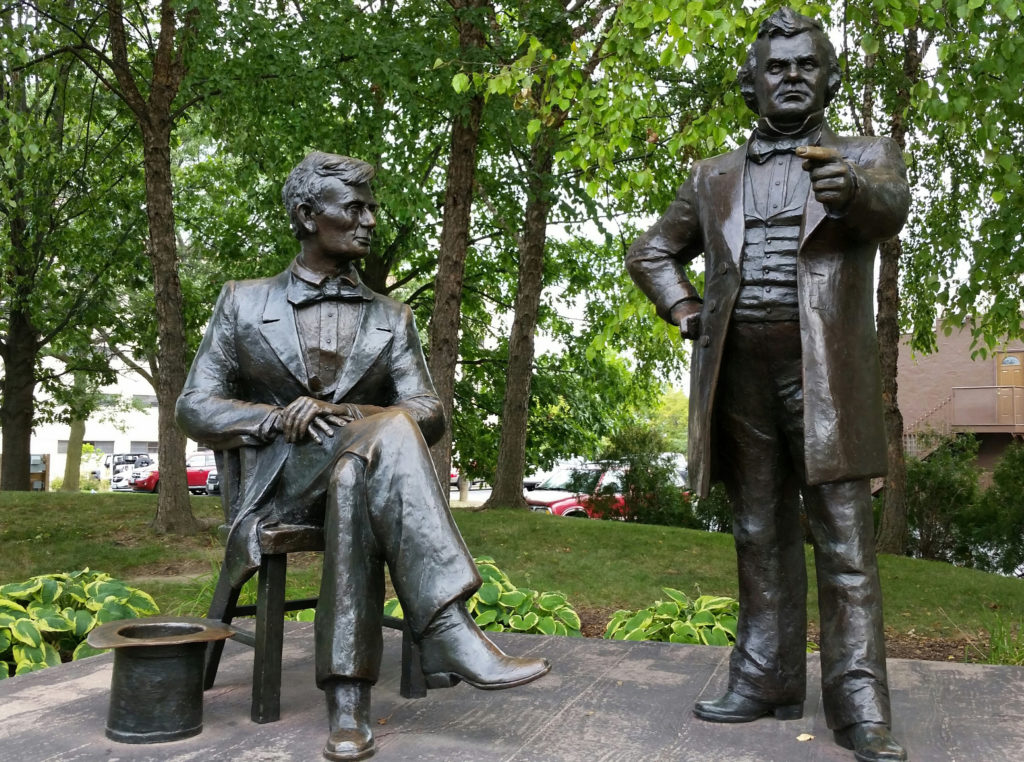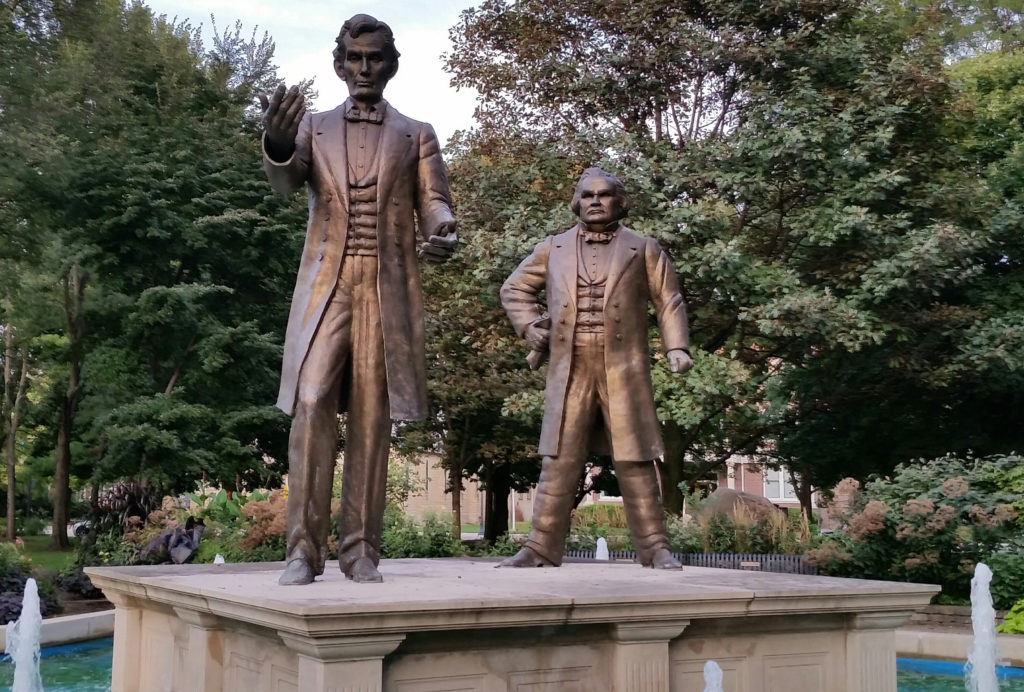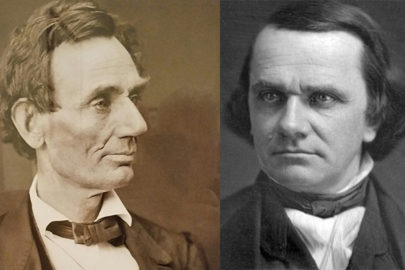By Don Radebaugh — Part of the mystery in history is how often events hinge on a dime. If this or that happens, or it doesn’t, then history flows in an entirely different direction. If I could only choose a handful of events that had the greatest effect on American history, the Kansas-Nebraska Act of 1854 would rank right up there.

To cut to the chase, if not for the aforementioned legislation, Abraham Lincoln would never have become the 16th President of the United States. Just think about that for a moment. If Lincoln isn’t elected, one could make a strong case that the Union doesn’t hold…that the slave-holding southern states would have set up shop as the Confederate States of America. And who knows…secession is contagious…I could easily envision several of the other states wanting to be their own country too, leaving the present-day America splitting at the seams with borders and bureaucracy to further complicate the whole thing going forward.
In fact, the Kansas-Nebraska Act is the very thing that sucked Lincoln back into politics, which led to two failed attempts at the U.S. Senate, followed by his run for President…most of us know how that last one turned out. The possibility of the westward expansion of slavery did not sit well with Lincoln. It infuriated him so much, that he charged back into politics with renewed fervor.
The Kansas-Nebraska Act was first introduced in congress by Lincoln’s arch rival Senator Stephen Douglas in January of 1854. Basically, it did two things. No. 1: it repealed the Missouri Compromise of 1820 and No. 2: it introduced the concept of Popular Sovereignty in the territories acquired as part of Thomas Jefferson’s Louisiana Purchase. In other words, it opened up the possibility of the westward expansion of slavery, both north and south. And that’s something that Lincoln just could not, would not, accept.
The Missouri Compromise was designed to appease both north and south. It seemed to work for a while, but it really only delayed the inevitable…that one day this slavery thing would be decided one way or another.
“A house divided against itself cannot stand,” said Abraham Lincoln inside the Old State Capitol in Springfield, Illinois on June 16, 1858. “I believe this government cannot endure permanently, half slave and half free. I do not expect the Union to be dissolved — I do not expect the house to fall — but I do expect it will cease to be divided. It will become all one thing or all the other.”
Wise words from a wise man. And, ultimately, he was correct, which tended to further aggravate his political opponents when events usually proved him right.
Under the Missouri Compromise, Missouri was admitted as a slave state while Maine came in as free. Except for Missouri, slavery was to be excluded from lands obtained in the Louisiana Purchase (westward expansion) north of latitude 36°30′, which was basically the southern border of Missouri. With the Kansas-Nebraska Act in play, there was no more line to separate slavery in the new territories. Further, Popular Sovereignty allowed the settlers of emerging states to decide whether their territory/state would be free or permit slavery.
As you might expect, both northerners and southerners found plenty wrong with the Compromise but it did manage to hold the Union together for more than 30 years…until Douglas’s Kansas-Nebraska Act repealed the Compromise and fanned the flames of Civil War.
It certainly got Lincoln’s attention and pulled him back into politics. If not for the Act, Lincoln the lawyer, after serving just one term in the U.S. House of Representatives, would have been but a blip on the political radar, and the world would not have come to know his genius. It’s that history hinging on a dime thing.

Lincoln not only reentered politics, he took it another step further, running for U.S. Senator from Illinois under the newly-formed Republican party. He of course lost the election to his Democratic opponent Douglas but he gained more notoriety in the process, which set himself up for another run at the U.S. Senate in 1858. With nothing to lose, Lincoln wisely challenged the more well-known Douglas to a series of seven debates across Illinois, which we know today as the Lincoln-Douglas Debates. Lincoln lost that election too, but the national attention he received by debating the political giant Douglas set the table for a bigger prize…a run for President against Douglas in 1860. And the rest is history. But make no mistake about it…there is no President Abraham Lincoln without the Kansas-Nebraska Act. Now that’s something to think about.
Whether Douglas ever really came around to Lincoln’s way of thinking is relatively unknown. But, at the end of any day, Douglas was pro-Union and worked tirelessly to help hold the Union together once Lincoln was elected in November of 1860. When Douglas died on June 3, 1861, just three months after Lincoln officially took office, Lincoln ordered all U.S. flags to half-staff in honor of his longtime political arch rival.
@DonRadebaugh on Twitter, or please like my Facebook Fan Page.

